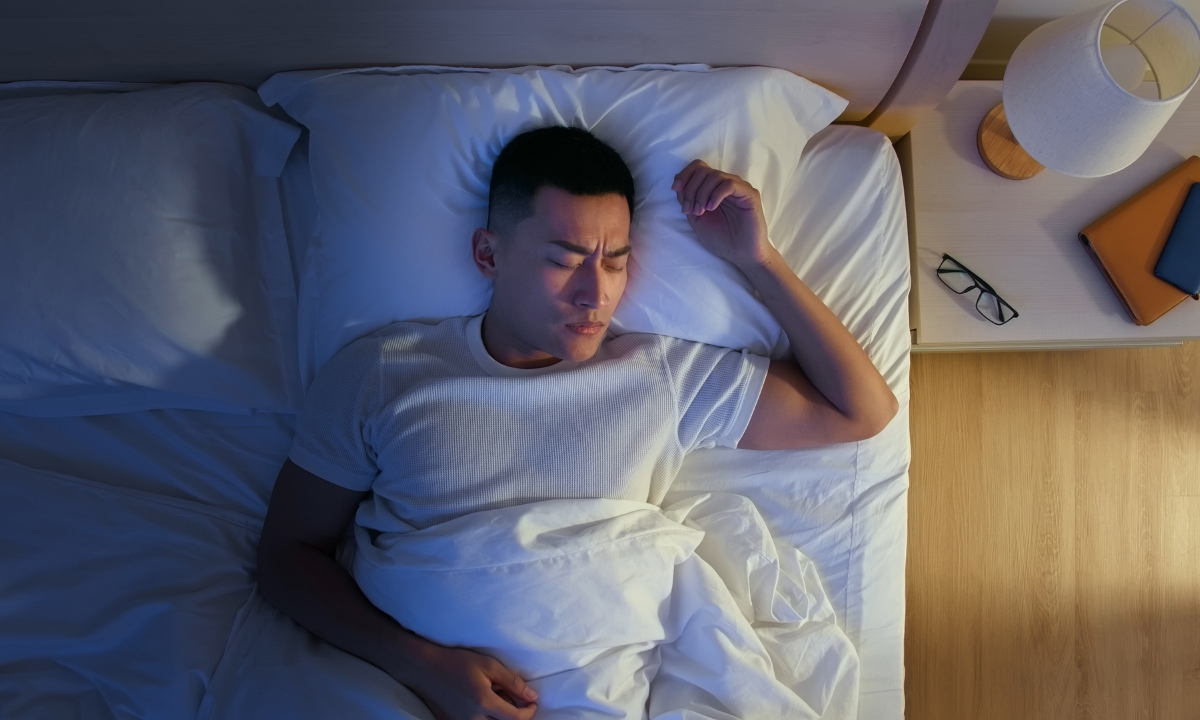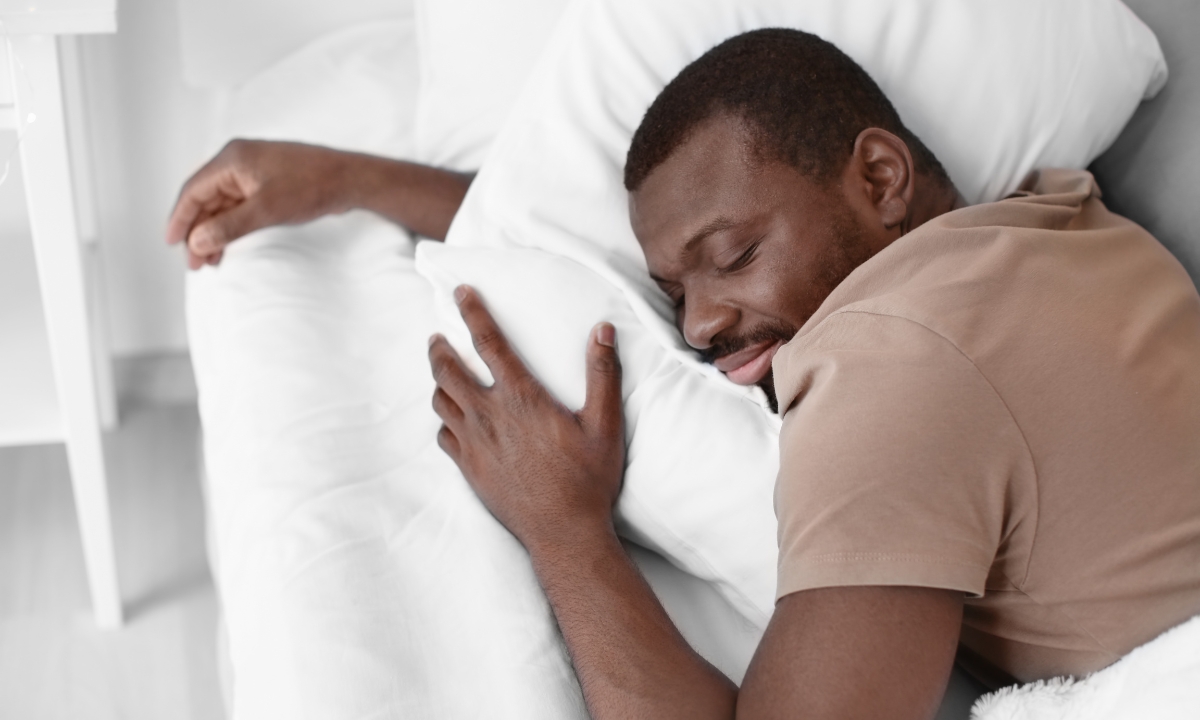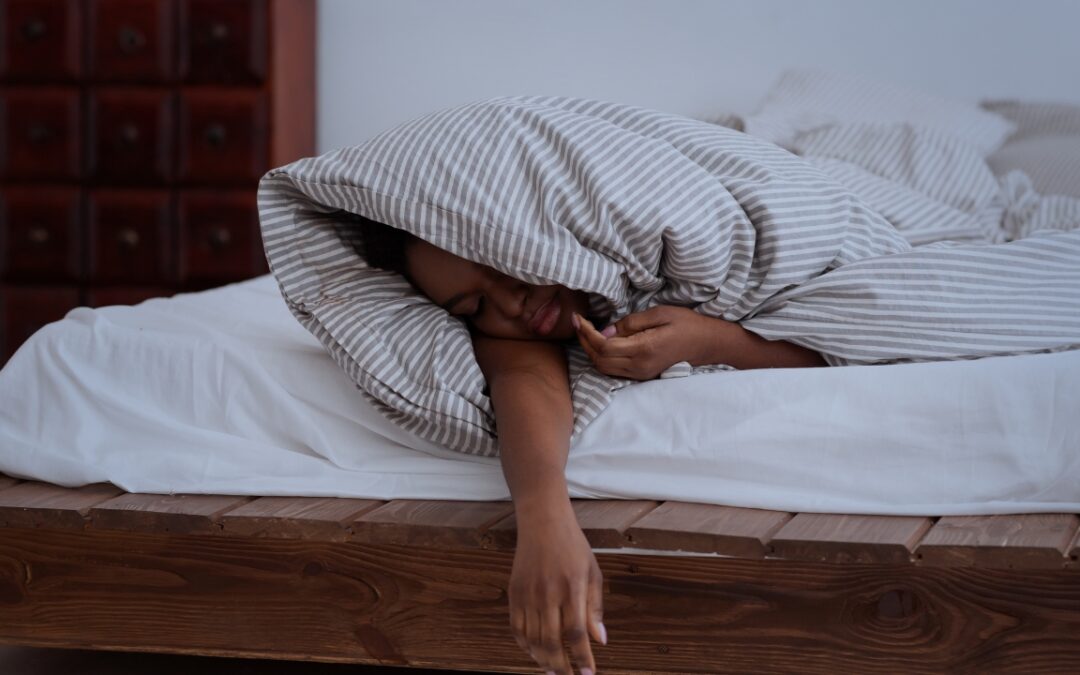Sleep is often seen as a time for rest and relaxation, but its importance extends far beyond simply recharging our batteries. During sleep, our bodies undergo a series of critical restorative processes that are essential for physical recovery, pain reduction, and optimal performance, which is why it’s imperative to understand the impact of sleep.
Understanding the science behind sleep and its profound impact on muscle repair, pain management, and overall well-being is essential for pain recovery. In addition, having practical tips to help you improve your sleep quality and maximize the benefits of physical therapy can help optimize your physical performance.

Why Sleep Matters
As a leading sleep advocacy organization has stated,
“In addition to adequate sleep duration, healthy sleep requires good quality, appropriate timing, regularity, and the absence of sleep disorders. It is the position of the American Academy of Sleep Medicine (AASM) that sleep is essential to health.”
The same paper goes on to report that, while individual sleep needs vary, the AASM along with the Sleep Research Society (SRS) recommend that the average adult should sleep seven or more hours per night on a regular basis to promote optimal health, and the National Sleep Foundation (NSF) provides similar consensus recommendations of 7 to 9 hours of sleep for adults and 7 to 8 hours of sleep for older adults.
In addition, sleep quality has an impact on athlete’s health and perceived training performance. As a research paper from 2021 notes,
“There is a strong positive association between sleep and athletic performance including sports-specific skill execution, strength, and anaerobic power (Walsh et al., 2021). Sleep is a basic requirement for health and recovery that is believed to be related to homeostatic processes that rejuvenate and replenish major physiological and psychological functions of the human body.”
The problem of poor or inadequate sleep impacts more than just athletes, however. According to a study published by the National Council on Aging (NCOA), more than a third of Americans report getting less than seven hours of sleep in a 24-hour period. About 30 percent of adults have symptoms of insomnia, with 10 percent having insomnia that impacts their daily activities. Sleep apnea impacts 9 to 38 percent of the general population.
The Science Behind Impact of Sleep on Pain Recovery
Sleep is not a passive state; it’s a highly active period during which the body performs vital functions for repair and regeneration. Here’s how sleep contributes to physical recovery and pain management:
- Muscle Repair and Growth: During deep sleep, the body releases growth hormone, which plays a crucial role in muscle repair and tissue regeneration. This is essential for healing injuries, rebuilding muscle strength, and reducing post-workout soreness.
- Pain Reduction: Sleep also promotes the production of neurotransmitters like endorphins, which have natural pain-relieving properties. Additionally, adequate sleep helps regulate the body’s inflammatory response, which can contribute to pain.
- Enhanced Immune Function: While we sleep, the body’s immune system is hard at work. Adequate sleep strengthens the immune system, making it better equipped to fight off infections and promote overall healing.
- Cognitive Function and Focus: Sleep deprivation hinders cognitive function, including focus, attention, and reaction time. This can be particularly detrimental during physical therapy when learning new exercises and focusing on proper form.
Numerous studies have indicated that adequate sleep has a direct impact on pain relief and recovery. According to an article from Harvard Medical School,
“Chronic sleep loss increases pain sensitivity, according to a new study from Harvard Medical School researchers at Boston Children’s Hospital and Beth Israel Deaconess Medical Center. The study suggests that chronic pain sufferers can get relief by getting more sleep, or, short of that, by taking medications to promote wakefulness, such as caffeine.”
Understanding the Impact of Sleep on Performance
Sleep is not just about recovering from injury or physical exertion; it’s crucial for optimal performance as well. When it comes to physical performance, sleep is a game-changer. Adequate sleep allows your muscles to repair and rebuild more effectively, leading to increased strength and power output.
On the other hand, sleep deprivation can significantly zap your stamina and endurance. Getting enough rest ensures your body has the energy reserves to perform at its best for longer durations. Sleep also plays a critical role in cognitive function.
When well-rested, you experience sharper focus, faster reaction times, and enhanced coordination – all crucial for excelling in athletic activities or performing physical therapy exercises with proper form. Finally, sleep deprivation can lead to irritability and emotional fluctuations.
Simply put, getting enough sleep helps you regulate your emotions and maintain a positive mindset, which can significantly benefit your motivation and perseverance during physical therapy.
The Benefits of Adequate Sleep on Your Mental and Emotional Health
When we prioritize sleep, we invest in our mental and emotional well-being. Adequate sleep regulates the production of neurotransmitters like serotonin, influencing mood and helping combat feelings of anxiety and depression. Sleep also strengthens our emotional regulation, allowing us to manage stress more effectively.
Furthermore, during sleep, the brain processes and consolidates emotional experiences, promoting emotional resilience. By getting enough sleep, we wake up feeling refreshed, better equipped to handle challenges and navigate life’s emotional ups and downs.
According to an article from the National Center for Biotechnical Information,
“The association between sleep and mental health is well documented. For example, people with insomnia are 10 and 17 times more likely than those without insomnia to experience clinically significant levels of depression and anxiety, respectively.”
Optimizing Sleep for Recovery and Performance
Understanding the importance of sleep is only half the battle. Here are some practical tips to help you improve your sleep quality and maximize your physical therapy outcomes:
- Establish a Regular Sleep Schedule: Go to bed and wake up at consistent times each day, even on weekends. This helps regulate your body’s natural sleep-wake cycle.
- Create a Relaxing Bedtime Routine: Develop a calming pre-sleep routine that signals to your body it’s time to wind down. This may include taking a warm bath, reading a book, or practicing relaxation techniques like deep breathing or meditation.
- Optimize Your Sleep Environment: Make sure your bedroom is dark, quiet, and cool. Invest in blackout curtains, earplugs, and a comfortable mattress and pillows.
In addition, here are some tips for things to reduce, limit, and avoid so as to improve your quality of sleep:
- Moderate Exercise: Regular physical activity can improve sleep quality. However, avoid strenuous exercise too close to bedtime as it can be stimulating.
- Limit Screen Time Before Bed: The blue light emitted from electronic devices can interfere with sleep. Avoid using screens for at least an hour before bedtime.
- Avoid Caffeine and Alcohol Before Bed: Caffeine is a stimulant that can interfere with sleep. Limit caffeine intake, especially in the afternoon and evening. Avoid alcohol close to bedtime, as it can disrupt sleep patterns.
- Manage and Reduce Stress: Chronic stress can significantly impact sleep quality. Practice stress management techniques like meditation, yoga, or spending time in nature.
Working with Pain and Performance Solutions for Sleep and Pain Recovery
If you’re struggling with pain or recovering from an injury, therapy can be a powerful tool for healing and regaining function. However, the benefits of treatment therapy can be significantly enhanced by prioritizing sleep hygiene.
At Pain and Performance Solutions, we understand the importance of sleep for optimal recovery. We can discuss your sleep habits and provide personalized recommendations to help you improve your sleep quality and maximize the positive effects of your pain relief treatment plan.
By prioritizing sleep and working together with our team, you can create a holistic approach to managing pain, improving physical performance, and achieving optimal well-being.

Start Your Journey to Pain Relief
During this journey, our first task is to sit down with you and gain an understanding of your current discomfort and your history of pain. After conducting a comprehensive evaluation, we can pinpoint the most suitable treatment approach to set you on the path to recovery.
You can contact us at (707) 636-4404 or complete our online contact form. We’re here to help you and address any questions you may have.
